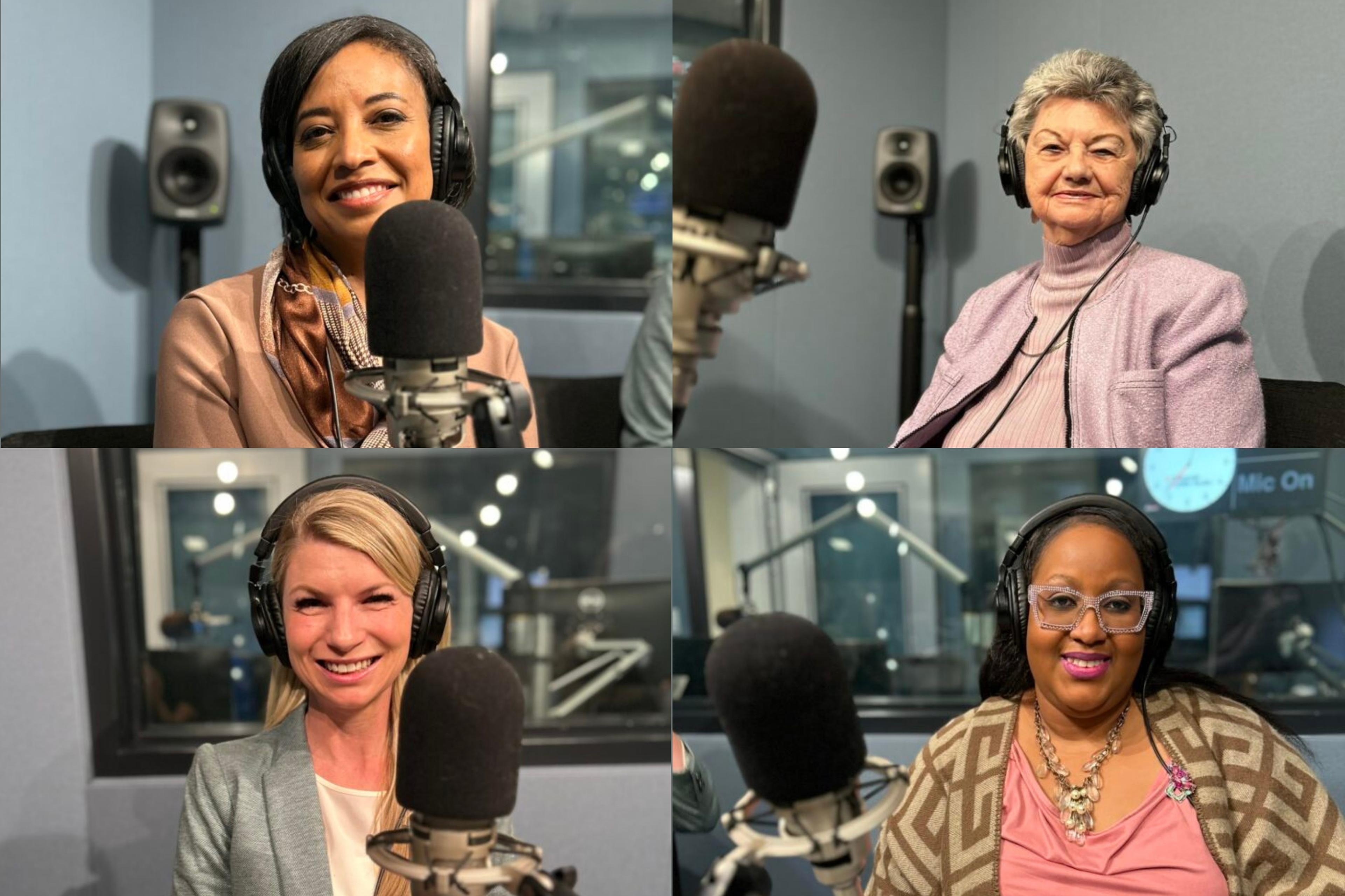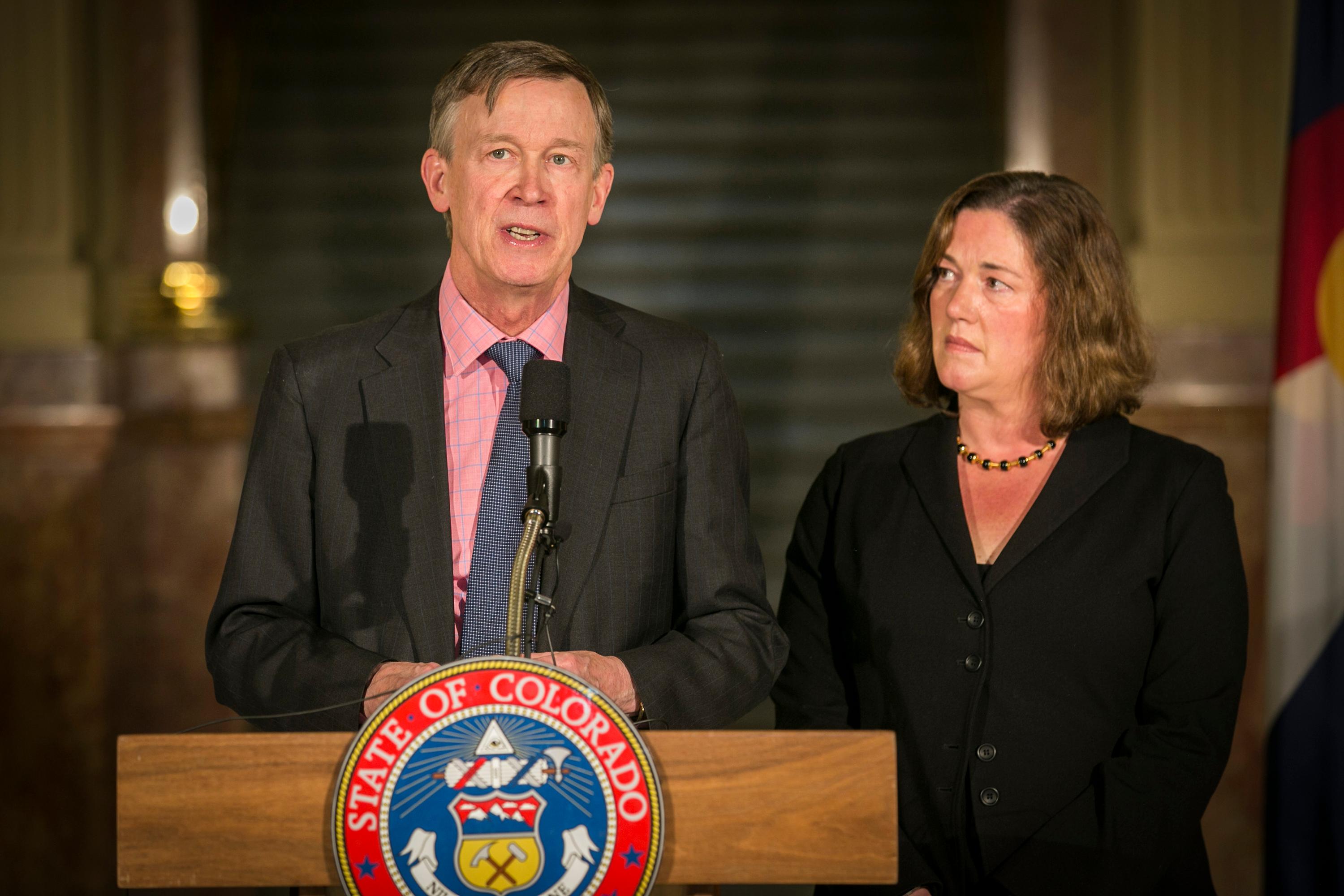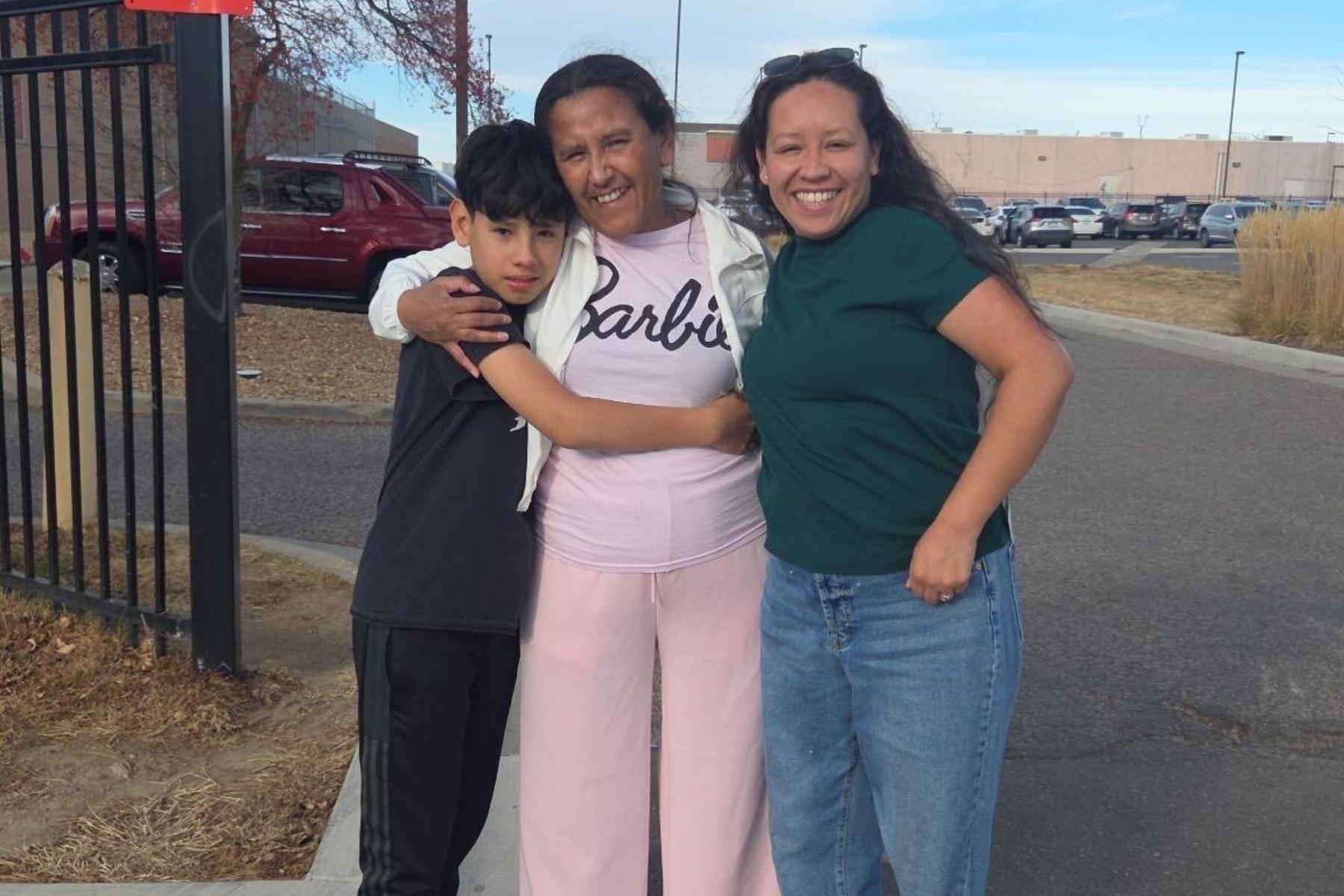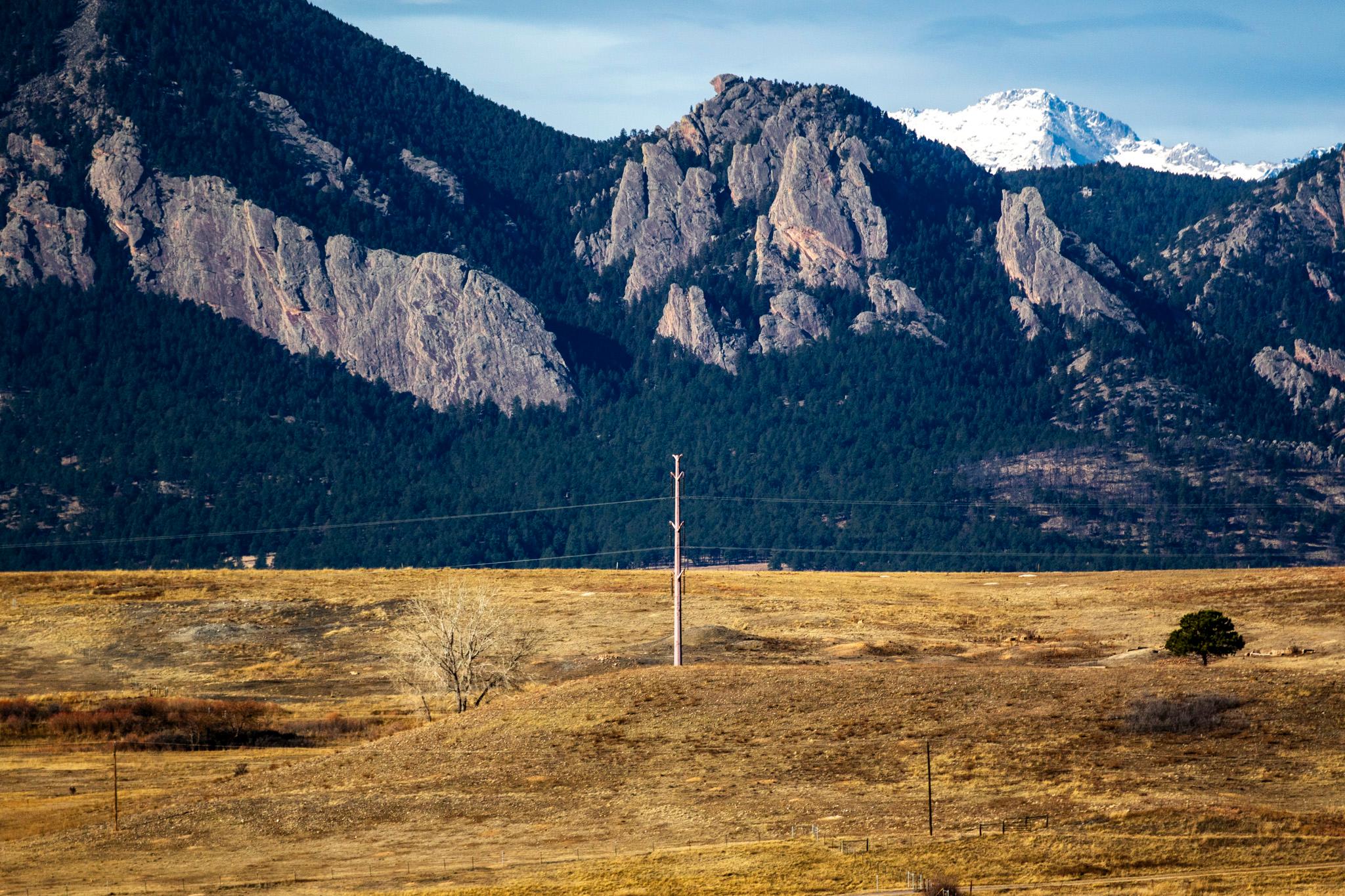
Colorado has consistently ranked highly for the number of women holding elected office for the last few decades. Colorado currently ranks second in the nation for the number of women elected to the state legislature. But this number only tells a fraction of the story.
Despite this ranking, political experts and female lawmakers around the state say there is still a lot of work left to be done to level the playing-field for women at the State Capitol.
According to the director of research at the Center for American Women and Politics, Kelly Dittmar, despite the robust recruitment of women for public office in Colorado, what Colorado’s national ranking doesn’t indicate is who these women are and the political power they hold.
“When we're thinking about women's political power and influence, it's important to look across different levels and types of office because we make assumptions that a state that's doing well at one level is doing well at all levels, and often that's not the case,” said Dittmar.
And this rings true for Colorado. Despite having a high number of women represented in the state legislature, Colorado has never had a female U.S. Senator, a female governor, or even a female mayor of Denver — the most powerful leadership positions in the state.
On top of that, women of color — particularly Latina, Asian, and Indigenous women — are significantly underrepresented in the Colorado state legislature.
According to Dittmar, lack of access to resources, gatekeeping, toxicity, and institutional racism and sexism are among the “unique dynamics” in Colorado that explain why women are either dissuaded from running for office or are unable to win elected offices.
“From our studies, we found men primarily run for office to be somebody, and women run for office to do something,” said Dittmar. “So if women’s primary motivation is ‘I want to change a policy’, when they see that these spaces are gridlocked, in addition to being sexist and racist, then it's really hard to get women to want to run and feel like it's safe not only for themselves, but also for their families — who by the way, they consider more often than their counterparts in making the calculation about if they should run.”
Colorado Matters Host Chandra Thomas Whitfield sat down with U.S. Representative Brittany Pettersen; former State Senator Norma Anderson; former Denver mayoral candidate and executive director of Women Uprising, Lisa Calderon; and the president of the Colorado Black Women for Political Action, Bianka Emerson, to provide their perspective on the past and present climate for women in politics in Colorado.
On reasons to celebrate
Pettersen: I think that what we have to celebrate in this moment is decades of work to actually change the representation here in the state. This didn't just happen by coincidence. This is active recruitment and training. Organizations like Emerge, the White House Project, Emily's List, and what Lisa continues to do, all of this has changed the face of Colorado. What I can tell you is that it's the women in my life who have made such an impact from the very beginning. I want to give a shout out to Senator Faith Winter. She was the first person who said “You should run for office one day.” And I said, “Oh, absolutely not. People like me don't run for office.” And she said, “Well, isn't that the problem?” It's building that support network, the women in your life who see something in you and encourage you. Something that I think is fascinating is that men wake up and say, I want to be president one day, but it takes women being asked 10 times to even consider it.
Calderón: I echo those sentiments that we didn't just wake up and have women in the majority. It took a lot of hardship and sacrifice. When I have talked to women across the state, to encourage them to run for office, there are two things that often come up and that is fear and shame. I think the fear is very obvious. As a woman, you become a target, you become visible, and that means the attention goes to you. So if you are used to making yourself smaller, your voice less than, or you don't think that you have enough capacity to run, overcoming that fear, including for your family, not just yourself, is an accomplishment in and of itself. And then the shame is around, well, I might've written a Facebook post that was controversial or I had to file for bankruptcy because we were struggling financially. And so what I tell women is, ”Have you heard of Donald Trump in all of his bankruptcies? And he's not ashamed to run for office.” And yet we have to be coached into getting over those barriers. So what I celebrate is just the fact that women are running, they are winning, and now it feels like we're at the point of really analyzing where we are in history.
On women gaining political power in Colorado
Anderson: It takes time. I was asked to run for governor when I left (office). I thought, “No thank you.” I didn't want to give that much time of my life to another office, so I said no. And I probably could have won because I had backing from both Democrats and Republicans at that time. Not anymore, I'm a RINO (Republican In Name Only). But it takes a lot of money and a lot of time. And if you still have a family, it's hard to give that up.
Pettersen: Unfortunately we still have a lot of gatekeepers and it's the good old boys club. And while we have built the bench and we have a lot to be proud of in Colorado, we are still facing that glass ceiling in our ability to move to the next level. So much of that is access to resources, networks. Women fundamentally have generally underperformed relative to males in fundraising just because of our exposure to individuals that have money. That's why organizations that recruit, train, and support people on the campaign side are so critical. It's not just how we start off behind as women, when we're trying to fundraise, when we're trying to get going, we also don't see ourselves oftentimes in those positions because we've never been told that it's going to be our turn. And there is always somebody else who has been preparing — generally white men — who are ready to step up in these positions. And that's why it's so important to ask and support the women to step up and believe in themselves to be able to do this job.
Calderón: I'll be very blunt. Institutional racism and sexism is a double-edged sword against women of color running, and I definitely experienced that in my (mayoral) race. First of all, you get asked why you're even thinking of running for an executive office. You can't be qualified. I have four degrees including a law degree and a doctorate, and people still didn't feel I was qualified. I've run nonprofits. So the bar feels higher. The other thing is we don't have that institutional wealth of support. So when it's a horse race and people are constantly looking at how much money you raise, women of color tend to start behind. It's not an even playing field. And when we look at institutional wealth — if you have friends and family who can automatically invest in your campaign from the beginning — that wasn't an option for me. I come from poverty and working people who were struggling, so going to that pool of people wasn't an option
Emerson: I also think it's the stigma and the attitude that, of course we live in a male dominated society. It's just what we live in. But I think too, the attitude that we hold sometimes as women is, “Oh, I can only be so much.” And then you have a greater society that says, “Oh, you can only go so far.” So those are the subliminal attitudes that we still have. And I think of just the pushback that we get regarding our first woman of color vice president. There's some way, somehow she's just not qualified to be there.
On breaking into the “good ol’ boys club”
Calderón: I ran for mayor. I mean, quite honestly, it was and still is, a good old boys club. I am still protesting the fact that we have an all male public safety team in 2024, we can't even conceive of having a woman police chief. So we're kind of still stuck in a time warp as we're moving forward. In some ways we've come so far and in other ways we are still put into that judgment about who we are as women, who we are as mothers, or if we even choose not to have children. There's even judgment with that.
Pettersen: Nobody's going to tell you that it's your turn and that's why it's so important that we recognize that and step up. I made a lot of people angry when I first ran for Congress because it was not my turn. And ultimately the second time I ran, I was able to clear the fields in a primary and go straight into the general. There’s a saying: (women) have to work twice as hard and prove ourselves twice as much in order to even be considered viable in these positions. And so I guess it's, step up and nobody's going to tell you that it's your turn and pave the way.
Anderson: When I was in the House, when I was first elected, there were several women there. Dottie Wham, Betty Neale, Ruth Wright. There were quite a few women in comparison to other legislative bodies, believe it or not. When I went to the Senate though and served as a majority leader, there were 18 Republicans. I was the only woman. And I guess they were afraid of me. I knew how to kill bills. You find a way to control. My way to control was I learned how to count votes. So then I could control what passed. Then they wanted to be my friend. You have to use whatever you can find to win.
On representation
Calderón: Latinas are often overlooked in being persuaded to run for public office, but I also look back at what inspired me to run. My grandmother who had 11 children, and didn't have a choice in having those 11 children, was a migrant farm worker and her family was from Mexico. She didn’t have role models in politics. But what she did have was a sense of what was just and passed that to my mother who was active in the migrant farm workers union and had me on a picket line at around five years old, boycotting grapes and lettuce. So our political upbringing doesn't look traditional at all, most of the time. And we also don't have a big enough cohort to build that bench. It's something I'm working on for both Latinas and for Black women, since I am biracial. What I notice with white women — and I've had some wonderful white women mentors in politics including encouraging me to run for mayor — but when they get office as a cohort, they tend to continue to bring each other through the pipeline, other white women, We need to see more white women also creating that pipeline for women of color. And that includes an emphasis on Latinas who don't have the same kind of institutional wealth and relationships that white women who do get elected have. So I would love to see more white women who are elected creating more opportunities for Black and Latina women to succeed them. Because that's how we actually build the bench and how we get to that generational power and wealth building. But right now it's just not there.
Emerson: I think we have to address systems that have not changed so that more women of color, particularly Black women, can run for office and be successful once they are there. There's a decline in women running for office because of the current political climate, which was totally different in 2017 because there was an increase of women who wanted to run for office. I remember Emerge putting out something about how they had so many women who were running to them saying, “train me to run, train me to run.” Now all of a sudden those same women are like, “oh, hell no, I don't want to do that.” So I think that is something that we have to be completely honest as it relates to the current political climate and the climate of bullying, the climate of racism, it's the climate of sexism, misogyny… all of that has to be addressed because we're not going to get to this “kumbaya, we shall overcome, God bless America,” until we address the systems in this country.
Pettersen: For the women who might not see themselves in these leadership positions — not just stepping up to run for office — but stepping up for that job that you might not think that you're qualified for, because we are trained to doubt ourselves. Nobody is going to tell you that it's your turn and you have to step up. We need more women in leadership across the board, and that's how we're going to change policy and that's how we're going to level the playing field. I think it's also reflecting on our own biases and when we might disregard a woman, a woman of color for maybe a white male, and to really check ourselves and make sure that we're looking at our own biases that have been ingrained in us through society.
Anderson: Equality is a word that I've worried about in our country for a long time. And I don't care what race you are. To be treated equally is extremely important. And I would hope that people think about what has been said here and say “ you know, they have a point. What can we do?”
On how the ‘Me Too’ Movement shaped the culture at the capital
Pettersen: I think that it's had a huge amount of change. When I think back to working in my low wage jobs, there was never a time where my superior didn't make me uncomfortable or abuse that power. And I felt like that was just the way it was because I was a woman and I had to work and it was just something I had to suck up and deal with. I can tell you when I was first running for office, the amount of terrible abuses of power by men and what they said when I was running, that completely stopped once I was finally elected. It took me being in elected office for men to stop treating me that way. And the Me Too movement, I think just brings that accountability. Not everyone's going to be elected to office and have that voice. We need to make sure that we are supporting each other with that transparency and accountability for men who abuse their power and try to exploit women.
Calderón: I think it's been a historic and important milestone, but less so for women of color. I remember hearing about the white women legislators at the Capitol who spoke up around sexual harassment — it was a turning point because it allowed that conversation to happen publicly. And yet for women of color, who now some years later raised some of the same issues when they're also combined with racism, don't necessarily get the same level of empathy that I saw the white women legislators getting. I also think about the punishment that women get when you speak out, and it's particularly profound for women of color. I think of, for example, Sergeant Carla Havard who was forced to retire from the Denver Police Department. As soon as she started speaking out about sexual harassment and racism — not necessarily her, but for her colleagues — she was forced to resign. Speaking out isn't enough. It definitely takes courage, but we also have to support women when they do. Including when they are facing loss of their position, loss of their jobs, loss of their reputation and their income. And it seems to be even more profound when women of color speak out around these issues. We just don't have a good apparatus for supporting those women.
Emerson: I think the Me Too movement, ironically, was founded by a Black woman but it's not working for Black women or women of color. There isn’t an atmosphere, there isn't a society that says that we care about what Black women are going through. So I am indifferent about how that's working or not working for particularly women of color.
On motherhood and public office
Anderson: When I ran, we waited until all our children were grown. Because it was not the time. If you had to take care of children, you better not run for office. It was very simple.
Pettersen: I'm actually one of only two democratic women in the House that have a toddler-aged kid. That is how rare it is to be a woman in Congress and have a younger child. And it's because our system isn't set up for us. When I was pregnant and gave birth during session. I was the first person to have to take leave to be with my newborn. We actually had it in statute. The only way that you could be on an extended leave and still get paid, was if you had a chronic illness. Because nobody even contemplated that a woman might need to take leave for taking care of her child and it should be for both parents. So we made sure to change that law. But I can tell you that there's a reason why so few of us are actually represented in Congress, it’s because it is incredibly difficult to navigate. There's a lot of systemic changes that we could bring to make it more accessible to regular people, especially younger women, and women who have children.
I know that I am judged constantly for being a woman in Congress while my son is in Colorado. I am treated very differently than my male colleagues. People are always trying to understand where my son lives and then saying, “That must be really hard for your husband.” (My husband and I) are a partnership and we very much split what we do for supporting our kid, and that's the way that it should be in our relationship. I'm grateful I have a strong partner, but I know that I am treated very differently as a woman, a younger woman, who has a young kid than my male colleagues who have the same.
On women working across the political aisle in Colorado
Anderson: I think one of the things that I found when I served was that women were very much looking at the children and what can we do to help the children. Improve education, childcare, preschool. We started preschool when I was there. Those types of things. And I remember the Democrat minority leader in the house was the sponsor of charter schools, believe it or not. And we work together on a lot of programs like that.
Emerson: Access to our reproductive healthcare. Reproductive justice has been a unifying factor, especially recently. Both Democrat and Republican women are joining together because it's not a partisan issue, it's an individual issue, and it's a human issue. And I think that that's something of course, we can continue to celebrate too, to see women coming together on those issues.
Pettersen: Being at the state legislature, I've always found women across the aisle who were willing to come to the table on addressing substance use disorder treatment, access to birth control, support for funding early childhood education, and funding our schools. I would find male colleagues as well across the aisle, but generally there are life experiences and perspectives that women — no matter whether they’re Democrat or Republican — are going to be able to relate to, come together on, and to try to work together. I wish that we saw that more at the federal level.
Calderón: I think what's consistent with the research and my lived experience, is women tend to run around issues that concern them. Issues that have affected them personally or their families or their communities. That was certainly the case for me. My son was assaulted by the Denver Police Department almost 20 years ago. As a mom, I could not get the police department to take accountability and really our political leadership. So I organized. I talked to my neighbors and testified at the Capitol about how we need to make our community safer without police violence. So that to me has been a common thread when I talk to women about running. If there is something in your community that bothers you, concerns you … then you have a right to speak about it, you are the expert in your own life. That's what you need to know when you're going up against these intimidating, male officials. Tell your truth and speak your story.









